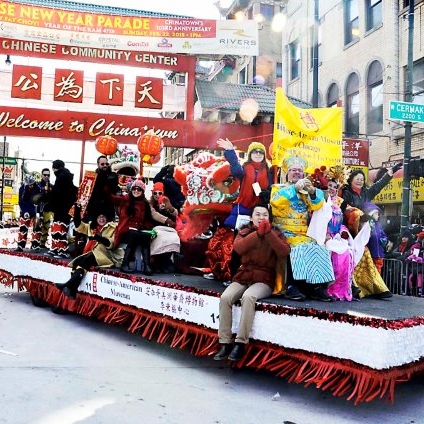
News

New Year across cultures
GILLIAN KLAWANSKY
Although the beats heard at your basic New Year’s Eve party may reverberate through your ears, the only fallout may be a slight headache. On the other hand, the sound of a shofar is a more sober reminder to start repenting before the Book of Life is closed on Yom Kippur.
While it’s a time of celebration and family, Rosh Hashanah is also marked by introspection as we pray for a sweet new year. Food, prayer and celebration also feature in numerous cultures that follow unique new year traditions.
Chinese New Year
Celebrated over 15 days, Chinese New Year, also known as the Spring Festival, is typically marked by global celebrations and family get-togethers. While different parts of the country have some different traditions, there are hallmarks of the festival.
Based on the traditional Chinese lunisolar calendar, New Year falls between January 21 and February 21, depending on when the new moon appears. Each year is assigned an animal zodiac sign, which occur in 12-year cycles – a tradition functioning much like horoscopes.
As is the case with Rosh Hashanah, family plays a large role in the rituals surrounding the festival with “New Year’s Eve” marked by a family reunion dinner, where those near and far come together.
Fish and dumplings which both signify prosperity, are often served at this meal known as Shou Sui. Fireworks are set off after midnight to ward off evil forces.
During the second day, some host religious ceremonies to honour the gods, while on the third, ancestors are typically honoured. Culminating in a beautiful lantern festival on the 15th day – Yuan Xiao – the period is also marked by New Year markets, cleaning house, red packets containing money – given to children to suppress evil and give them long life – and beautiful decorations.
Thai New Year
Lesser known but also fascinating, Thai New Year called Songkran, is a Buddhist festival which means “astrological passage”. It follows the Buddhist/Hindu solar calendar. Marking the end of Thailand’s dry season, it looks ahead to the country’s first rains in April and occurs between the 13th and 15th of that month.
In light of this, observers follow a cleansing ritual by visiting their temples and washing their Buddha statues (and their homes) to bring luck for the New Year. Some also bring bags of sand to their temples “returning the dust they’ve carried on their feet in the past year”, which is then sculpted and decorated to honour the Buddha, according to The Telegraph.
They also offer food to the monks to remember their ancestors. People dress up in colourful clothing and prepare to celebrate.
The highlight of the three-day festival is the throwing of water to symbolise the hope of good rains for the coming year – be it from the massive water guns operated by excited children or directly from buckets they throw. Tourists are particular targets. Talc powder is also thrown, adding a white magical – but messy – look to the streets.
Islamic New Year
Determined by a lunar calendar, much like Rosh Hashanah, Islamic New Year occurs on a different Gregorian date each year, and the two dates sometimes coincide. New Year marks the beginning of Muharram – literally translated as forbidden – the first month of the Islamic lunar calendar and one of the four holy months in the year, according to The Independent.
Many fast during this period and it’s also a time of prayer. It’s generally a low-key holiday and customs vary for Shia and Sunni Muslims.
The first day of Muharram is known as Hijri New Year as it commemorates the emigration of Muhammad from Mecca to Medina, known as the Hijra.
Much like Rosh Hashanah, the New Year is a period for self-reflection and prayer for many Muslims. It’s also a time of historical awareness and the tenth day of the month is known as Ashura, when the massacre at Karbala is remembered – when Muhammad’s grandson, Imam Hussein ibn Ali, was killed. The period is also marked by family time.
So, with this in mind, as you go into our unique New Year, may it be a meaningful one!




